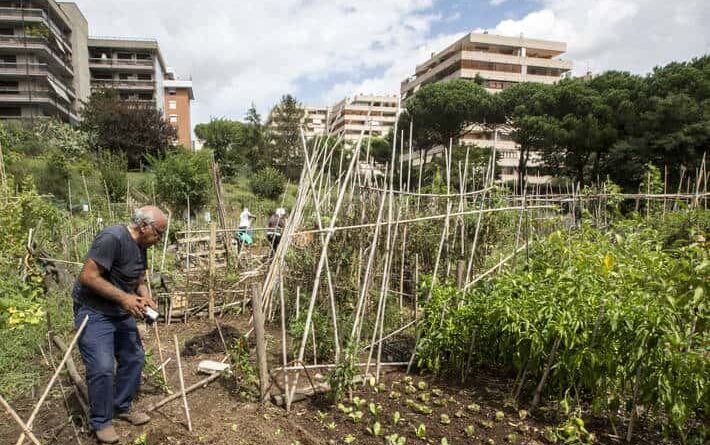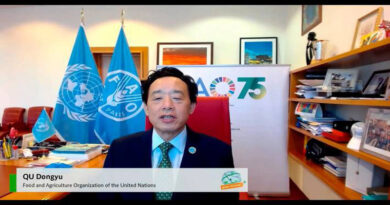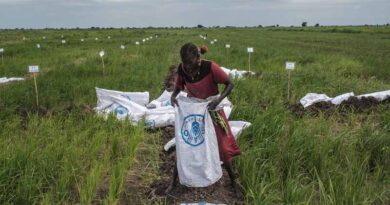FAO launches Green Cities Initiative to help transform agri-food systems
Turning the recovery from COVID-19 into an opportunity for cities to become more sustainable, resilient, and provide access to healthy foods for all
18 September 2020, Rome/New York: FAO unveiled today its new Green Cities Initiative and Action Plan to help transform agri-food systems, end hunger and improve nutrition in and around the cities in a post COVID-19 era.
Read: PMFAI’s ICSCE 2020 to be hosted on 3D Virtual Platform
The launch took place at a high-level virtual event entitled “Green Cities to Build Back Better for SDGs – A New Powerful Venture” hosted by FAO during the 75th session of the UN General Assembly.
Highlighting the vast potential of cities in reducing the impacts of the COVID-19 pandemic on people’s health and food security and contributing to climate change mitigation, FAO Director-General QU Dongyu encouraged all partners to appreciate the essential role of cities in building back better and the urgency of innovative, comprehensive and coordinated actions.
“For cities to become much greener, more resilient and regenerative, we need to rethink the way urban and peri-urban areas are designed and managed”, he said in his opening remarks at the event. “With only ten years left to achieve the Sustainable Development Goals”, QU added, “we need a fundamental change of mindset and remodelling our business approaches”.
A new way of thinking
FAO Green Cities Initiative aims to improve the livelihoods and well-being of urban and peri-urban populations in at least 100 cities (15 metropolitan, 40 intermediary and 45 small cities) around the world in the next three years, looking to have 1000 cities join by 2030.
In particular, the initiative is focused on improving the urban environment, strengthening urban-rural linkages and the resilience of urban systems, services and populations to external shocks. Ensuring access to a healthy environment and healthy diets from sustainable food systems, it will also contribute to climate change mitigation and adaptation and sustainable resource management.
Read: Cargill to advance regenerative agriculture practices across North American farmland by 2030
The new initiative also includes the creation of a “Green Cities Network”, where cities of all sizes – from megapolis to medium to small – will exchange experiences on best practices, successes and lessons, as well as build city-to-city cooperation opportunities.
FAO will enhance its work with local and national authorities, city councils, mayors, the private sector, academic institutions and international organizations, and engage with urban communities – especially with women and young people.
“The initiative we are launching today is a product of a new way of thinking. I hope that you are inspired to join us and support it by your innovative way of implementation!”, the FAO Director-General concluded.
Why is urban greening important?
The world is becoming more and more urbanized. By 2050, almost 70 percent of the world’s population will be living in cities, with 90 percent of the increase occurring in Africa and Asia. About 70 percent of all food supplies are consumed by urban dwellers – a number that is steadily on the rise.
Read: Temasek signs agreement to acquire a majority stake in Rivulis
Population growth and rapid urbanization imply dietary shifts and an increasing demand for basic goods and services, as well as growing competition for natural resources to ensure access to healthy diets for all. Local administrations are finding it more and more difficult to meet the needs of urban and peri-urban populations and the COVID-19 pandemic has added new challenges, such as food systems disruptions, loss of jobs and food insecurity, worsening conditions especially for the most vulnerable.
As a result, many urban and peri-urban communities are now more than ever exposed to food and nutrition insecurity combined with diet-related non-communicable diseases as well as increasing rates of overweight and obesity.
Today cities consume almost 80 percent of the total energy produced in the world. They are responsible for 70 percent of global waste and account for about 70 percent of global energy-related greenhouse gas emissions.
Maintaining sustainable food systems and having more green spaces, including urban and peri-urban agriculture and forests are essential for cities, making them more resilient in dealing with the impacts of climate change and COVID-19, ensuring that health-related issues do not disrupt urban food supply and distribution.















